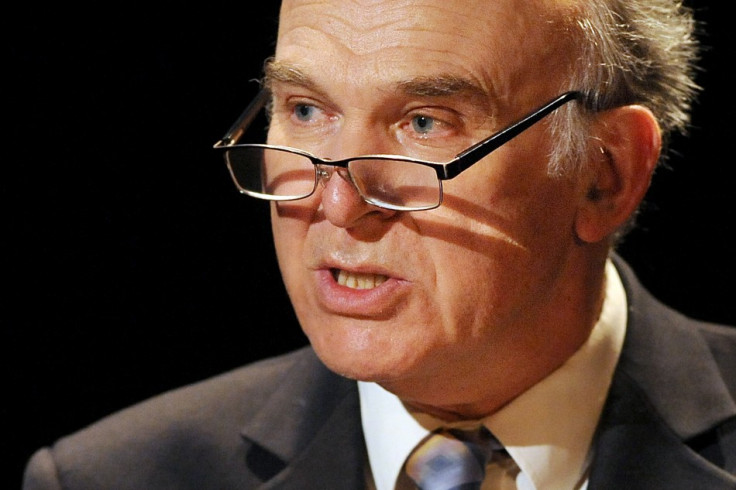Vince Cable warns of second financial emergency

The U.K. Business Secretary Vince Cable has warned that Britain could face the economic "hydrogen bomb" of a second financial emergency.
The Lib Dem Cabinet minister faces a new confrontation with Chancellor George Osborne over remarks that the Coalition and other governments are failing to "get to grips" with the threat.
Mr Osborne has consistently said that Britain is out of the "danger zone" of the financial crisis as the country begins to come to terms with his tough economic policies.
In an interview with the New Statesman magazine yesterday, Mr Cable also rated his party at "one or two" out of ten for its political performance since the election.
He said that he felt "empathy" rather than "pity" for his party leader Nick Clegg, as the Deputy Prime Minister has come under "relentlessly hostile" pressure since the Coalition's formation last year.
But Mr Cable said he was most worried by the potential for a repeat of the recent global financial emergency.
"I was very impressed with that Warren Buffett metaphor that asset-backed mortgage lending was the atomic bomb, and that there are hydrogen bombs out there.
"I just don't think that, collectively, governments have got to grips with this at all." When asked whether one of these "bombs" was about to explode, he replied: "It's not imminent. But you can see this happening."
He cited the long deflationary slump that followed the financial crisis in Japan at the beginning of the 1990s as a warning of what might lie ahead for Britain.
"Japan has never recovered since 1990," he says. "And that's the thing that some economic writers never engage with: what happens when a financial system collapses? The progressives have never engaged with this issue; [John Maynard] Keynes never wrote about it. Nobody engaged with the problem of what, as a social democrat, you do when your financial system goes down . . . The Japanese thing is a very serious warning for us."
© Copyright IBTimes 2024. All rights reserved.





